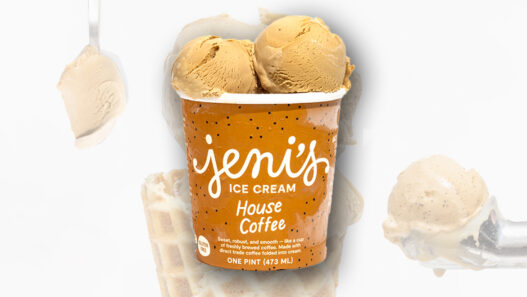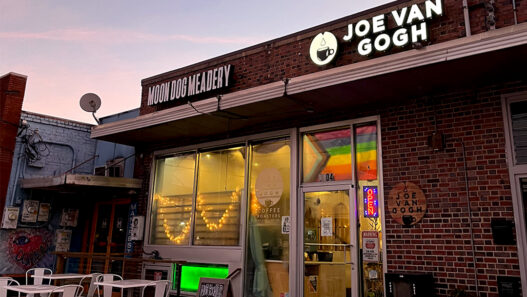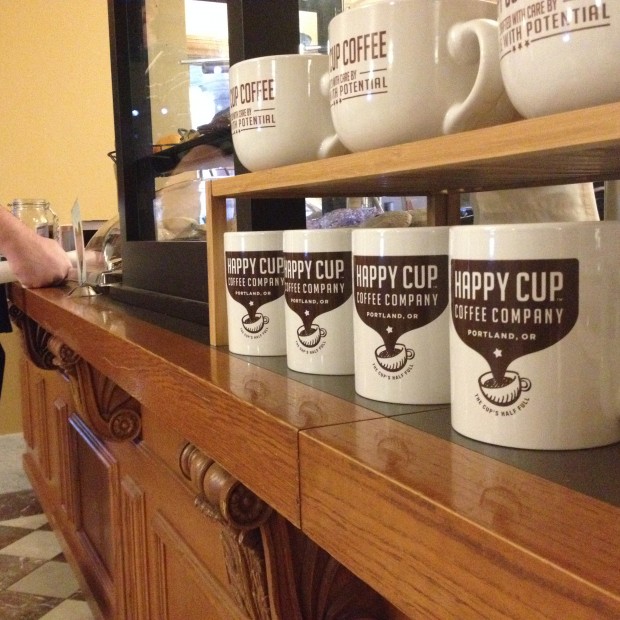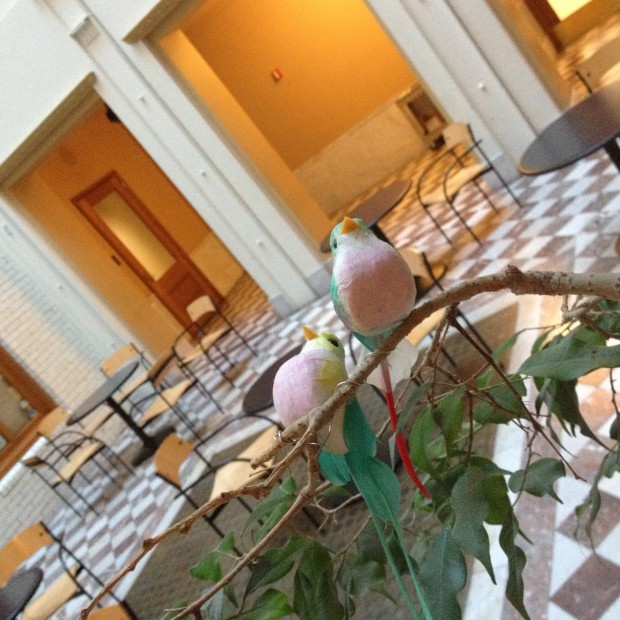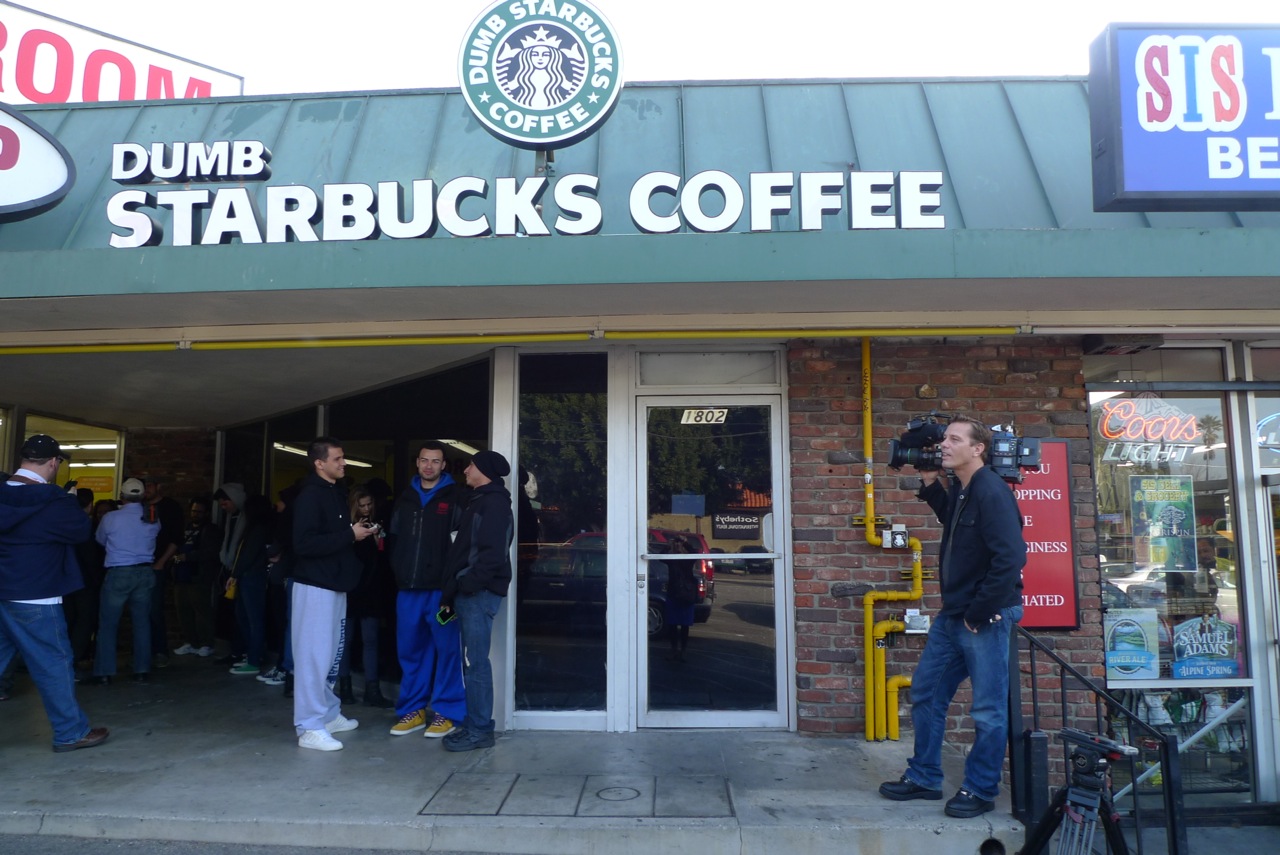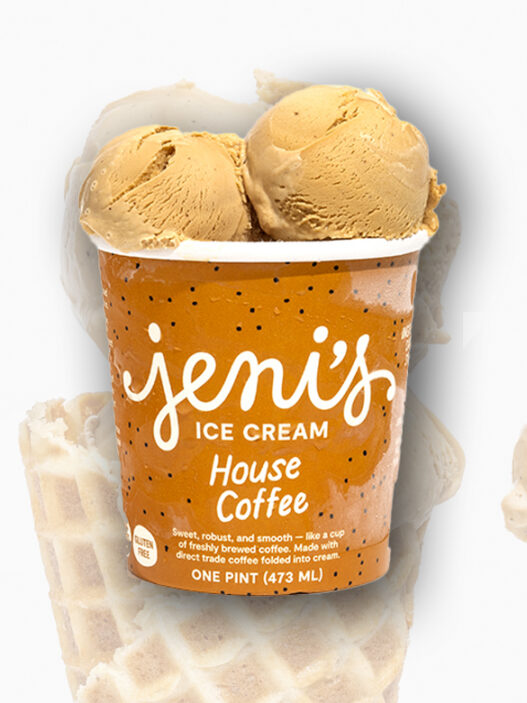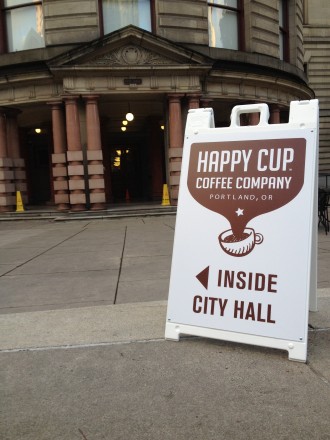
A giant dragon puppet dance. A homeless rights protest. A visit by hundreds of Japanese schoolchildren.
In your average coffee shop, these would probably rank as major disturbances. But at Portland’s City Hall café, it’s just another ho-hum week.
The new café, which opened January 21st and is operated by social enterprise roaster Happy Cup, is part of an effort by Portland’s mayor Charlie Hales to create a more welcoming space for visitors to City Hall. Since the Occupy Portland protests of 2011, the sidewalk outside the historic 1895 building had been occupied by fair housing protestors, who erected a semi-permanent tent city. Last summer, Hales set about making a series of changes, starting with a daytime ban on camping in front of the building.
By October of last year, the protestors’ tents had been replaced by an array of local food carts. Just inside City Hall’s main entrance, Happy Cup’s new café is emblematic of the mayor’s efforts to make city bureaucracy more inviting, in a recognizably Portland kind of way. In an email to city employees, Hales wrote, “Happy Cup represents a great opportunity for us to draw people into City Hall. We don’t want to be a place that people go only when there is a problem—we want to be an inviting and integrated part of the community.”
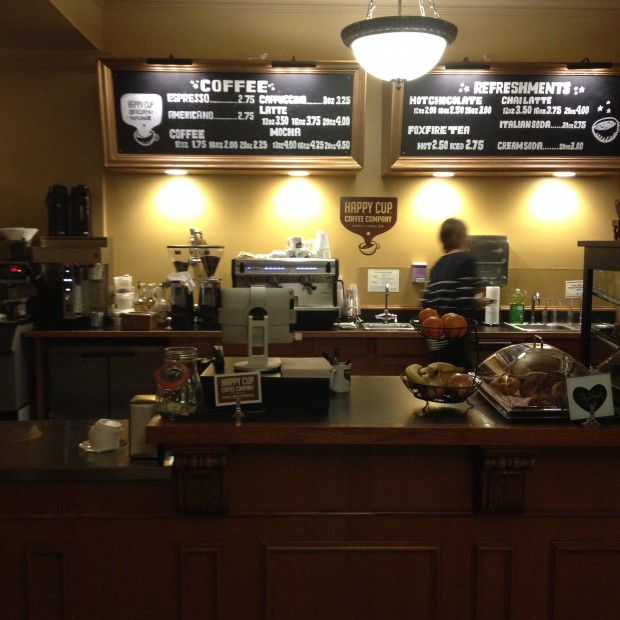
It’s too early to tell if the ploy is working to attract more citizens or tourists, but so far government employees are overjoyed. “They’ve been showing up in force,” says Adam Bray, Happy Cup’s director of operations. The café sits immediately inside the expansive front lobby, framed by original red-and-white marble tile flooring. The building, a hunchbacked architectural specimen in the Italian Renaissance style with a squat frame and low light, was once called “expensive, unseemly, and unhealthful” by mayor Sylvester Pennoyer, back in the early 1900s. But that’s perhaps an overly harsh assessment for what now works as a quirky and nostalgic space, particularly one that situates coffee firmly in the center of the city’s civic life.
Only two coffee companies responded to a request for proposals put out by the city last year, but Happy Cup—with its social mission to support “people with potential” (adults with disabilities)—was an obvious choice. A spokesperson for the mayor’s office, Abby Coppock, says, “Selecting Happy Cup was a natural nexus that allows the City to support a local business, provide a convenient amenity to the building, and support vocational training services at the same time.”
“The support of the city has been awesome,” says Bray, “and it’s an incredible opportunity for us to showcase our social mission and our skills as a roasting company.”
Happy Cup employs about 30 adults with developmental disabilities on its production line in three crews who stamp bags, measure out roasted coffee, and work as janitorial staff. At the City Hall café, the company will now also employ two disabled adults per shift, who will begin with tasks like helping batch brew coffee and bussing tables. The goal will be to train some of them to work as full baristas. “This is a great next step for the employees we have who are really dedicated,” says Mr. Bray. “To work at City Hall, they have to have skills like traveling independently to get to the job. They will get to interact with a broad range of the public. This is an ideal way to teach skills that can transfer to other work.”
Happy Cup launched in 2012. Their mission and savvy marketing have helped them grow rapidly—in 2013, they had a 40% bump in revenue, according to Bray. The company began by renting time on a shared 6-kilo Probat roaster owned by Trevin Miller, the owner of local green coffee supply store Mr. Green Beans. Miller trained Happy Cup’s full-time roastmaster Charley Austin, who began as a home roaster and now roasts 30,000 pounds of green coffee a year on Happy Cup’s own Probat.
The café features a breakfast and lunch menu, full espresso bar, and Fetco-brewed drip coffee, with plans for a pour-over bar in the near future. Austin is excited because the space will allow him to showcase limited runs of single origin coffees (sold under the moniker “Side Hug”); examples of recent offerings include a light roasted Ethiopia Harrar. The majority of Happy Cup’s offerings are blends sold to wholesale customers, including dozens of local grocery stores as well as offices and cafes. Boom Boom is a dark roast (with coffees from Papua New Guinea, Brazil, and Uganda), while Buzz, the most popular roast, is a medium-dark blend with coffees from Peru, Brazil, Guatemala, and Uganda. The house espresso is Morning Madness. Each coffee is charmingly named by Happy Cup’s staff—a Sumatran coffee is Mystic Dragon, while one from Rwanda is Gorilla Rose.
Since the café opened two weeks ago, Portland’s mayor has reportedly stopped in almost daily. What kind of coffee beverage does Portland’s top politician like best? Speaking confidentially to Sprudge, sources say he’s all business: Americano or drip.
Hanna Neuschwander (@hneuschwander) is the author of Left Coast Roast, “a guide to artisan and iconic coffee roasters from San Francisco to Seattle” published by Timber Press. She is a regular contributor to Portland Monthly, Edible Seattle, Willamette Week, and Sprudge.com.






